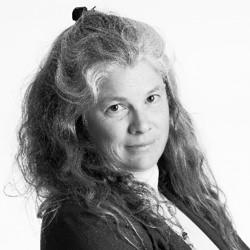
Over the last 10 years, the cost of sequencing the human genome has come down drastically. Human genomic data is a gold-mine of information, potentially unlocking the secrets to human health and longevity. As a society, we face ethical and privacy questions related to how to handle human genomic data. Should it be aggregated and made available for medical research? What are the risks to individual’s privacy? This talk will describe a mathematical solution for securely handling computation on genomic data, and highlight the results of a recent international contest in this area. The solution uses “Homomorphic Encryption”, based on hard problems in number theory related to lattices. This application highlights the importance of a new class of hard problems in number theory to be solved.
Lauter was awarded the Selfridge Prize in Computational Number Theory in 2008 and was elected to the 2015 Class of Fellows of the American Mathematical Society "for contributions to arithmetic geometry and cryptography as well as service to the community." In 2017, she was selected as a fellow of the Association for Women in Mathematics in the inaugural class. She is the 2018-2020 Polya Lecturer for the Mathematical Association of America.
Lauter received her BA, MS, and Ph.D degrees in mathematics from the University of Chicago, in 1990, 1991, and 1996, respectively. Prior to joining Microsoft, she held positions as a visiting scholar at Max Planck Institut fur Mathematik in Bonn, Germany (1997), T.H. Hildebrandt Research Assistant Professor at the University of Michigan (1996-1999), and a visiting researcher at Institut de Mathematiques Luminy in France (1999). She is a co-founder of the Women in Numbers Network, a research collaboration community for women in number theory, and she is the lead PI for the AWM NSF Advance Grant (2015-2020) to create and sustain research networks for women in all areas of mathematics. She serves on the Board of Trustees of MSRI, the Advisory Board of the Banff International Research Station and has served on the Council[7] of the American Mathematical Society (2014-2017).
